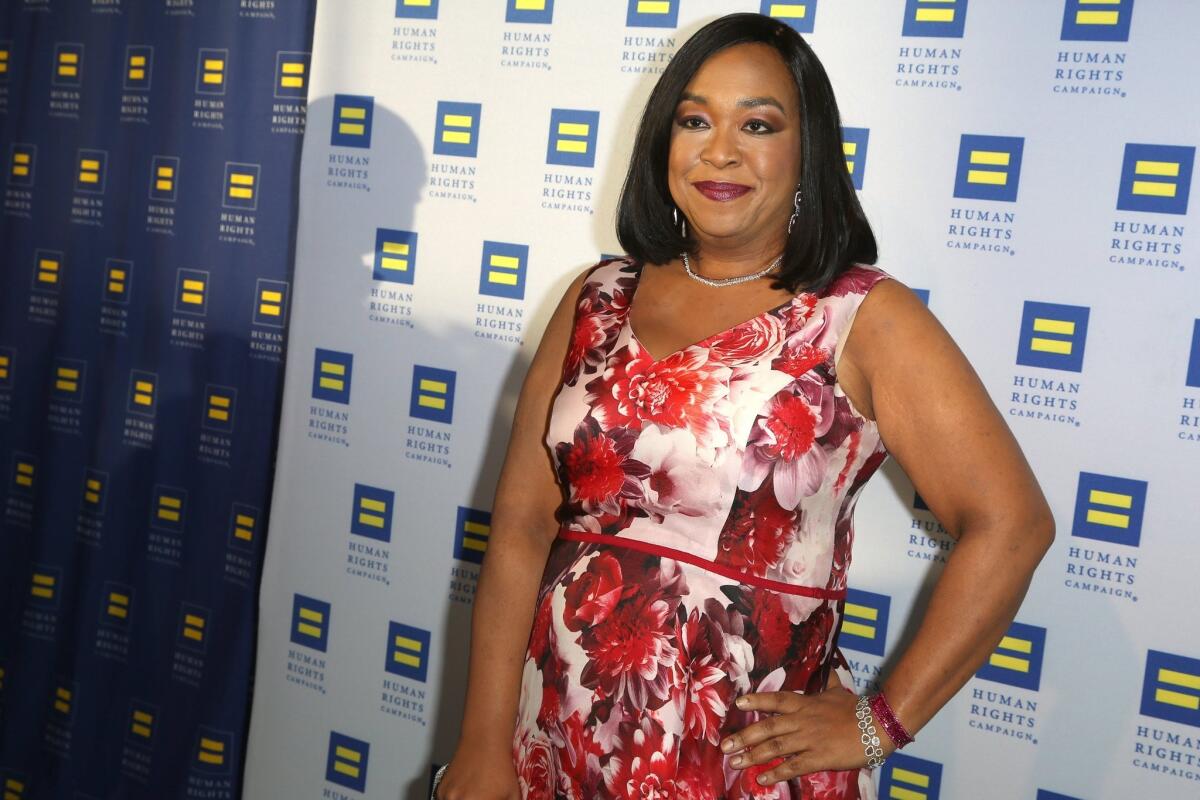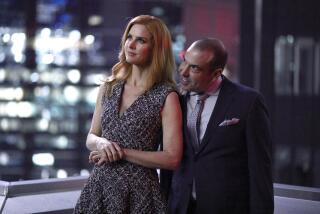Panel including Shonda Rhimes address film/TV’s ‘unconscious bias’

- Share via
The top entertainment figures filling the stage at the Writers Guild Theatre came from wildly diverse areas. One was an Oscar-winning actress, another was an Oscar-winning writer, and another was one of TV’s most powerful producers.
Moderating the event was a former executive producer and show runner of the popular series “The Walking Dead.”
Though the figures had come from different backgrounds, they had all come together for one purpose: to explore what they labeled as the entertainment industry’s tendency toward “unconscious bias” — stereotyping of women and people of color — which has negatively influenced hiring practices in Hollywood.
“Scandal” and “Grey’s Anatomy” executive producer Shonda Rhimes, actress Geena Davis (“Thelma and Louise”), producer and writer Callie Khouri (“Nashville”), producer-writer Todd Holland (“Malcolm in the Middle”) and producer Peter Paige (ABC Family’s “The Fosters) were among the honchos gathered in front of about 300 attendees at the Beverly Hills-based event sponsored by the Writers Guild of America West.
The issue of “unconscious bias” has impacted writers’ rooms on TV comedies and dramas, as well as other projects where the majority of writers and producers are white males. The hot-button topic, centered on stereotypes and false perceptions, has taken on added resonance in recent months due to the added attention on increasing diversity on prime-time network television.
Glen Mazzara, a former show runner of “The Walking Dead” and an executive producer on several series including “The Shield”, said he has met with resistance in the past when he has tried to increase the number of women and people of color on his shows’ writing staffs
“I had two Asians on a writing staff and a network executive asked if I had an Asian fetish,” said Mazzara, who moderated the panel.
“I find it’s very difficult to go out there and talk about this in an honest way,” he added, “What is the problem? There are a lot of white male executives, there is a lot of white representation at agencies and the deck is kind of stacked.
He said, “Hollywood is a conservative environment and everyone is afraid to take a risk.... It’s a systemic problem and it’s very complex. People need to be educated.”
Davis, founder and chair of the Geena Davis Institute of Gender in Media, said her organization has done research that has revealed a tendency toward unconscious gender bias and that very little of Hollywood’s entertainment is gender balanced.
She said only 17% of crowd scenes in animated and live-action films are female. “The only theory I can come up with is that writers think that women don’t gather,” said Davis.
Davis concluded that kids consuming entertainment at an early age are “unconsciously trained” that “in a world that is half-female, in the 21st century, that women are less valuable than men and boys.” That thinking carries over into adulthood, she said.
Rhimes said she has made it a priority to not only include women and people of color in her projects, but to give people working on her shows opportunities to develop and grow in areas they are interested in. She also wants diversity in opinions, saying she doesn’t like to be surrounded “by people who are just going to say yes to me all the time.”
More to Read
The complete guide to home viewing
Get Screen Gab for everything about the TV shows and streaming movies everyone’s talking about.
You may occasionally receive promotional content from the Los Angeles Times.






